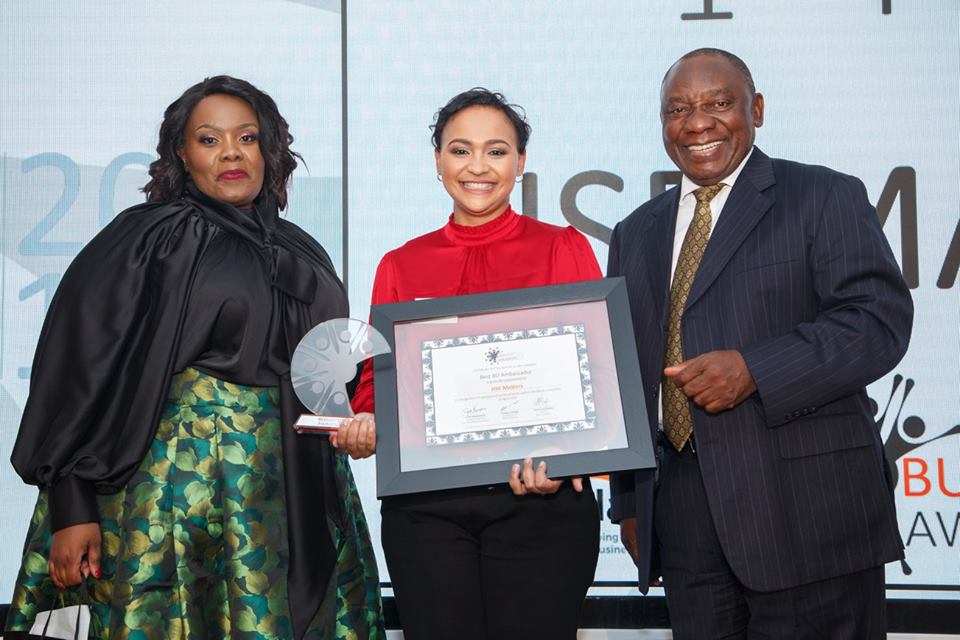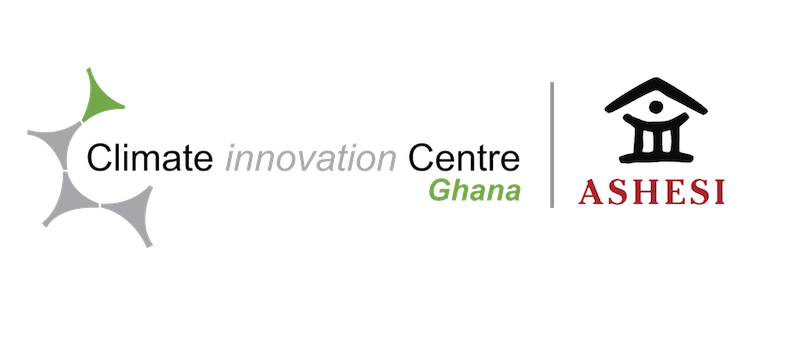In June 2018, Black Umbrellas honored top performing Small and Medium-sized Enterprises (SMEs) with awards aimed at showcasing black-owned businesses in South Africa that are sustainable, profitable and create employment opportunities for those in their communities.

From left-Black Umbrellas CEO, Ms. Seapei Mafoyane, one of the award recipients and South Africa’s President, H.E. Mr. Cyril Ramaphosa
The Black Umbrellas is an Enterprise and Supplier Development (ESD) incubation organization that partners with the private sector, government and civil society to address the low levels of entrepreneurship and high failure rate of 100% black-owned businesses in South Africa. The Black Umbrellas is one of the enterprises under the Cyril Ramaphosa Foundation and has nine incubators countrywide.
Black Umbrellas (BU) established the National Enterprise Development Awards (NEDA) in recognition of the achievements of the entrepreneurs in their business incubation program. The awards recognized the SME that had created the most jobs, the best performing company, the best Black Umbrella ambassador, the national overall winner and the incubator of the year from all their nine incubators. The businesses within the Black Umbrellas incubation program over the past 6 years have collectively generated a turnover of R2.6 billion, created and maintained over 11 000 jobs and have a combined Net Asset Value of R 1.1 billion.
GCIC Executive Director, Ms. Rukayatu Sanusi, stated when talking about the importance of incubators in creating scalable and sustainable SMEs: “Well structured incubators with a holistic approach to the entrepreneurial journey provide entrepreneurs with the requisite, critical knowledge, insight and mindset shift that can enable them to go the long-haul with their business, and experience the business as well as personal success that they crave. The key is to be intentional. Intentional about your entrepreneurial journey, and intentional about your incubation experience – going through it as an experience that can provide the foundational and the transformational premise that can put you in pole position for investment readiness, extraordinary business leadership, as well as business success.”
Being invited to the awards ceremony was a great honor, but also served as both a challenge and inspiration to GCIC. “Knowing that one of the entrepreneurs, two days after the awards ceremony, opened a multi-million rand facility showed how an entrepreneur can successfully leverage an incubation experience. For an entrepreneur to be able to source that sort of funding, he or she must operate their business in a manner that not only demonstrates professionalism and best practice, but also in a manner that proffers leadership credibility, insight and foresight.” Ms. Sanusi stated.
Seeing the high quality and caliber of entrepreneurs and global partner corporations including SMEs in their value chains was also a key learning point. “It was really encouraging and for me it made me think how we as GCIC can support our entrepreneurs to appreciate the picture that this could be them, they could be the ones in the supply chain of companies like Total, who as we all know, just opened the first solar-powered filling station in Ghana. If global corporations with operations in Ghana are seeking out for clean tech small and growing businesses to include in their supply chain, how do we ensure that our entrepreneurs partner with them? How do we support our entrepreneurs to bring their clean technology innovation up to speed for big corporates to generate an interest in working with them?” She stated.
The Ghana Climate Innovation Centre (GCIC) is a pioneering business incubator whose objective is to support entrepreneurs and ventures involved in developing profitable and locally appropriate solutions to climate change mitigation and adaptation in Ghana. The Centre’s key focus is on building businesses operating within the areas of energy efficiency, domestic waste management, solar energy, water supply management and purification and climate-smart agriculture. GCIC is part of the World Bank Group’s infoDev Climate Technology Program. Supported by the governments of Denmark and the Netherlands, the Centre is managed by a consortium led by the Ashesi University and including Ernst & Young, SNV Ghana, and the United Nations University Institute for Natural Resources in Africa.

